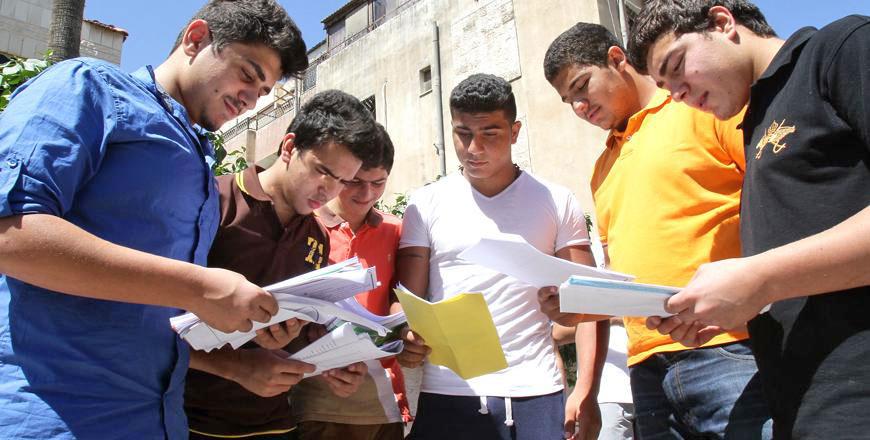You are here
Academics split on decision to lower admission scores for parallel admission to universities
By Tala Qarrain - Oct 25,2018 - Last updated at Oct 25,2018
AMMAN — Academics expressed mixed reactions regarding a recent decision by the Ministry of Higher Education to reduce university admission rates for parallel students, with some saying it was “a win for both sides”, while others claimed the decision was “purely financial”.
President of the University of Science and Technology Saeb Khreisat told The Jordan Times on Tuesday that the Ministry of Higher Education’s decision to reduce university admission rates for parallel students could act as a “win-win solution for both students and universities of the governorates located far from the capital”.
The entities affected by the decision include Al Tafeeleh Technical University, Al al-Bayt University, Al Hussain Bin Talal University and The University of Jordan in Aqaba.
“Such admission rates will not affect faculties related to medicine, dentistry or pharmacy where the admission rate is 80 per cent, or veterinary where the admission rate is 70 per cent, but is more related to faculties of art, education and business,” Khreisat stated, noting that those saying the decision would affect the quality of graduates entering the market disregard the fact that “it totally depends on the student”.
“If a student deserves to succeed then he/she will not be compromised, because it all depends on the student,” he said, adding: “I believe that if the university maintains the same level of teaching, the education input will not be compromised for the majority. On the contrary, it will create a chance for the student to prove that survival is for the fittest.”
Khreisat stressed that the decision offers students a choice to stay within their city or area when searching for a university instead of seeking out a private university far from home, since there are currently not many educational options in the governorates. The decision would also allow those public universities to garner extra income.
Citing the University of Maan Khreisat said “They have two programmes: the regular programme plan, which is supported financially, and the parallel programme, which has the same price tag, but without support.”
“This would allow the university to acquire extra income from students that would have previously spent their money at a private university. Thus,” he maintained, “this decision could act as a win-win solution for both students and the universities.”
Coordinator of the Thabahtoona student campaign, Fakher Daas, said that he believes this is “a purely financial decision that contradicts all policies, strategies and declarations of the Ministry of Higher Education, which stresses that input majorly contributes to output when it comes to education”.
“This decision works against the approach that encourages student with a low GPA to go for vocational skills instead of academic studies, where they could have a much better chance,” he explained.
Student Manar Juneidi agreed, saying: “Often, registration for competent students reaches its maximum capacity very early,” leaving out some students who are capable and would like to study the specialty.
Juneidi said that, at the same time, there is “a larger number of seats for parallel students who are able to pay a higher fee for the same specialty undeservingly”.
“One of the main reasons that I stand against this decision is that it empowers the notion that this entity is weak and will remain weak in the minds of the people and the students,” Daas said, stressing that if the salaries of academics justifiably increased through the governmental aid department, then “proper caliber would want to work there allowing for better specialties to be present and consequently elevating the reputation and level of education there”.
Related Articles
Members of the Lower House and representatives of professional associations on Wednesday voiced their rejection of the University of Jordan’s (UJ) recent decision to increase tuition fees for postgraduate and parallel programmes.
AMMAN — The National Campaign for Defending Students’ Rights (Thabahtoona) on Monday called for the revision of educational policies concern
AMMAN — The Higher Education Council on Tuesday assigned its legal and academic committees to set the admissions policy for the academic yea

















